
A week after I handed a tired young mother four dollars at the gas station, an envelope showed up at my work with my name scrawled across the front. There was no return address or explanation. It was just a simple white envelope that would end up changing the way I saw kindness forever.
Advertisement
I’m Ross, and I’m 49 years old. I’ve got a wife named Lydia, two kids who keep growing out of their shoes faster than I can buy new ones, and a mortgage that still feels way too big for a house that’s honestly too small. But it’s ours, and that counts for something.
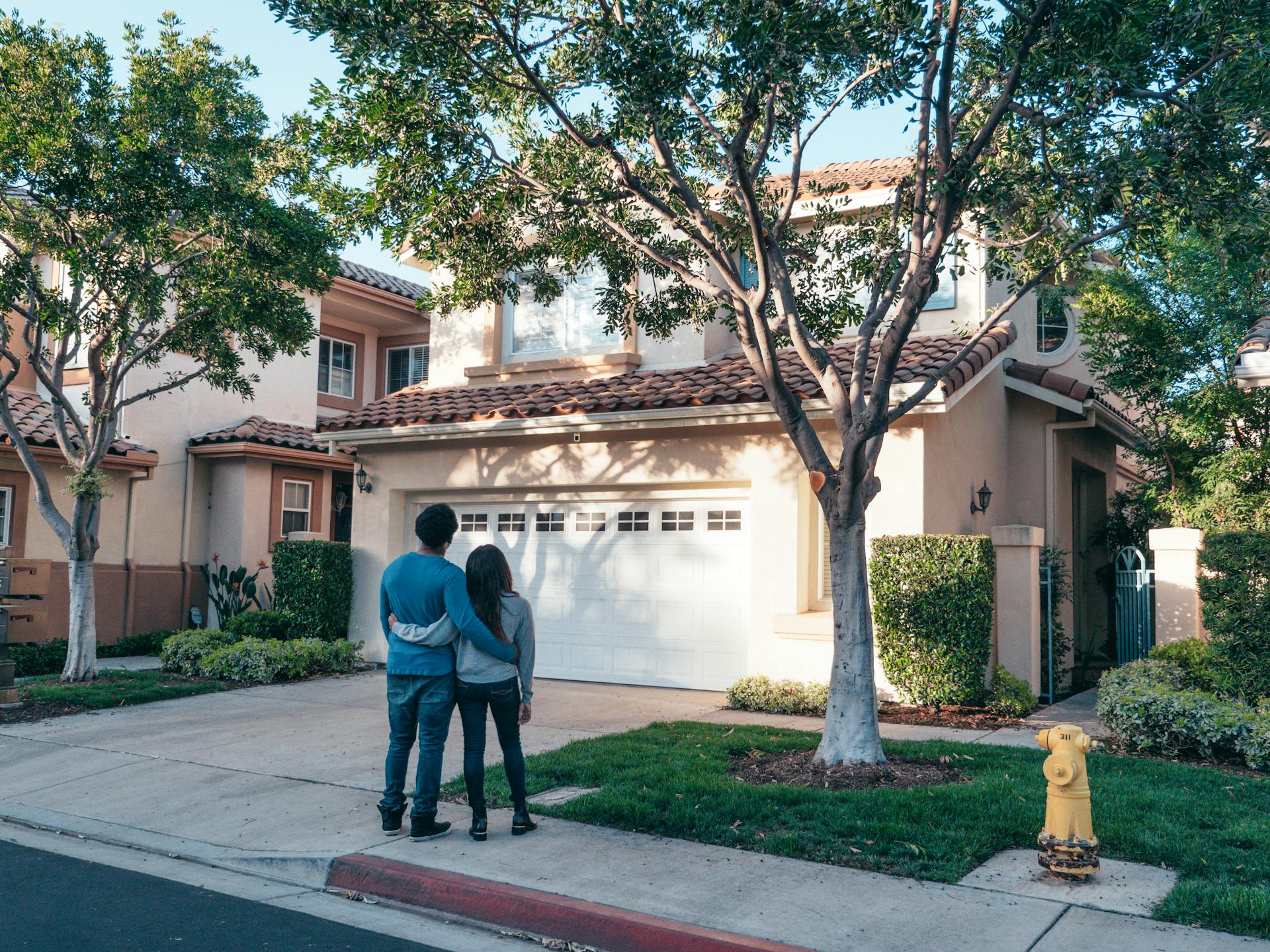
A couple standing in front of a house | Source: Pexels
A few years back, the factory I worked at for over two decades shut down overnight. I mean… literally overnight.
One morning, we clocked in like always, and by afternoon, there were locks on the gates and a single piece of paper taped to the fence that said the company was filing for bankruptcy. Twenty-three years of my life, gone just like that.
I tried to find something else right away. I sent out resumes, knocked on doors, and made phone calls until my voice went hoarse. But at my age, it turns out no one’s hiring for much more than night shifts and minimum wage. The younger guys got picked up fast, but me? I was too old for the good jobs and too proud to sit around doing nothing.
Advertisement

A man sitting on a bench | Source: Pexels
So here I am now, working the late shift at a gas station off Highway 52. It’s one of those places truckers stop at when they need coffee and a bathroom break, where the lights flicker sometimes and the air always smells like burnt hot dogs from the roller grill.
It’s quiet most nights, just me and the buzz of the fluorescent lights overhead. The same three songs play on repeat from the radio, and after a while, you stop really hearing them.

A gas station | Source: Pexels
Advertisement
That particular night started like all the others. A couple of truckers came through around 9 p.m. A teenager bought energy drinks and beef jerky at 10 p.m. Then it went quiet again, the way it always does after 10:30 p.m. I was restocking cigarettes behind the counter, half-listening to some talk radio show, when the door chimed.
It was 11:30 p.m. when she walked in.
She was carrying a sleeping child on her shoulder, a little boy whose arms hung limp around her neck. She moved so carefully, like even breathing too loud might wake him.
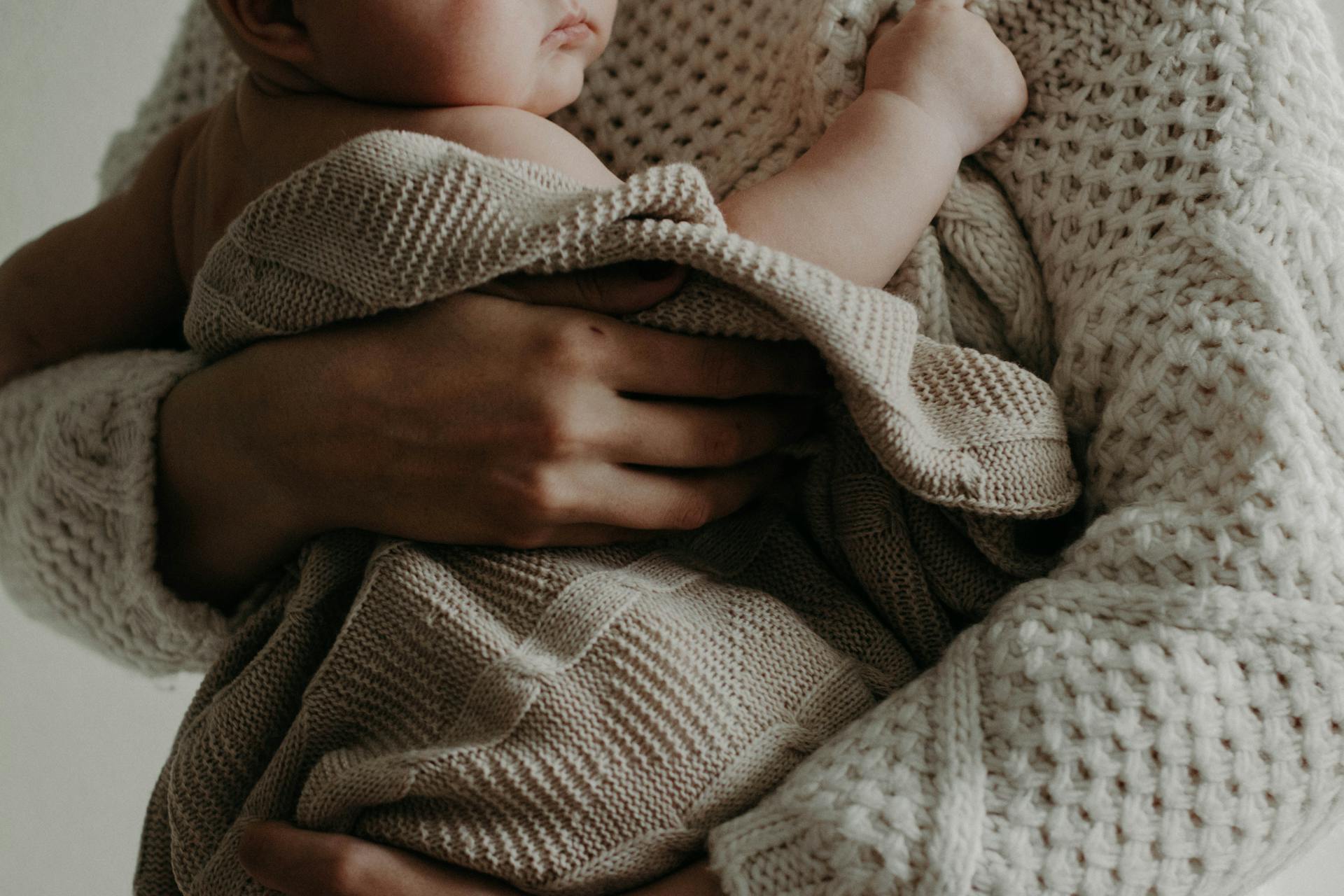
A woman holding her baby | Source: Pexels
Her hair was messy and pulled back in a loose ponytail, her gray sweatshirt had stains on the sleeve, and her eyes looked hollow.
Advertisement
She didn’t say anything at first, just walked slowly down the aisles while balancing the kid on her hip. She picked up a small carton of milk, a loaf of white bread, and a pack of diapers. Nothing extra.
When she came up to the counter, she set everything down gently and shifted the boy’s weight on her shoulder. He stirred a little but didn’t wake up. I scanned the items and told her the total.

A woman holding money | Source: Pexels
“Fourteen seventy-two,” I said.
She dug through her purse with one hand, her face getting more and more tense. I watched her pull out crumpled bills, count them twice, then look up at me with eyes that were starting to glisten.
Advertisement
“I’m short by four dollars,” she whispered. “Can I… can I put the diapers back?”
I didn’t even think about it. The words just came out.
“It’s fine. I’ve got it.”
She froze, staring at me like she didn’t quite believe what she’d just heard.
“It’s late,” I said softly, pulling four singles out of my own wallet and putting them in the register. “Just get home safe, okay?”
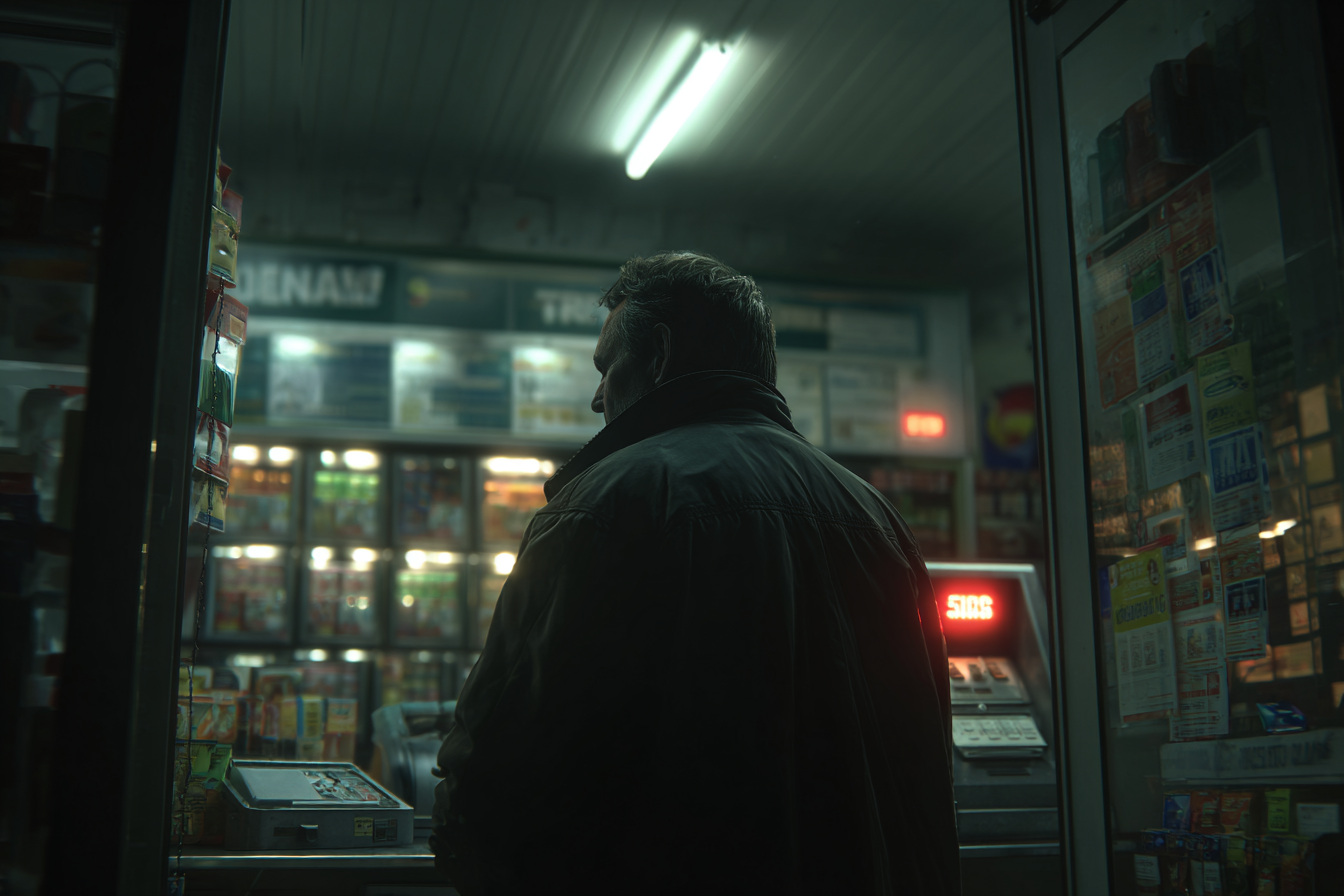
A man standing behind a counter | Source: Midjourney
For a second, I thought she might cry right there. She nodded quickly, grabbed the bag with her free hand, and hurried out into the cold night. Through the window, I watched her clutch that little boy tight as she got into an old sedan that looked like it had seen better days.
Advertisement
Then she was gone, and the station went quiet again.
The next week passed like all the others. I worked my shifts, came home tired, and tried to help Lydia with dinner when I could stay awake long enough. We didn’t talk much about money anymore because there wasn’t much point. We both knew the situation, and talking about it just made it feel heavier.

A man sitting on a couch | Source: Pexels
It was the following Thursday when my manager, Mr. Jenkins, called me into his office. He’s a decent guy in his mid-50s.
“Ross, did you cover someone’s groceries last Friday night?” he asked, leaning against his desk with his arms crossed.
My mind raced. Had I broken some rule? Were they going to make a big deal out of four dollars?
Advertisement
“Yeah, I did,” I said, feeling my face get warm. “I’m sorry if that was against policy. I paid for it myself, I put my own money in the register—”

A close-up shot of a man’s eyes | Source: Unsplash
He held up his hand and shook his head. “No, no, that’s not why I’m asking.” Then he reached behind him and picked up a white envelope. “This came for you this morning. Addressed to you by name.”
He handed it to me, and I just stared at it. My name was written on the front in neat handwriting.
“Go ahead and open it,” Mr. Jenkins said, watching me with curious eyes.
My hands felt clumsy as I tore open the envelope.
Advertisement

An envelope | Source: Pexels
Inside was a folded piece of paper, and underneath it was something I wasn’t expecting.
A check for $5,000, made out to me.
I read the amount three times because I thought I was reading it wrong. But no, there it was. Five thousand dollars.
The note was short but written with care.
“Dear Ross,
Thank you for your kindness to my daughter, Emily. You have no idea how much you helped her that night. She made it home safe because of you. This is a small token of our gratitude. We would also love to have you over for lunch this Sunday if you’re willing. Please come. We’d like to thank you properly.”
Advertisement
There was an address written underneath, on the other side of town.

A close-up shot of a handwritten note | Source: Pexels
I just stood there holding the check, my hands starting to shake. Mr. Jenkins raised his eyebrows like he was waiting for some kind of explanation, but I couldn’t find any words. My brain couldn’t catch up to what I was seeing.
“Everything okay?” he finally asked.
“I… I don’t know,” I managed to say. “I need to go home.”
He nodded and didn’t ask any more questions.
I drove home with the envelope sitting in the passenger seat like it might disappear if I looked away. When I pulled into our driveway, Lydia was in the kitchen making sandwiches for the kids’ lunches. She looked up when I came in, and I guess something in my face worried her because she put down the knife right away.
Advertisement
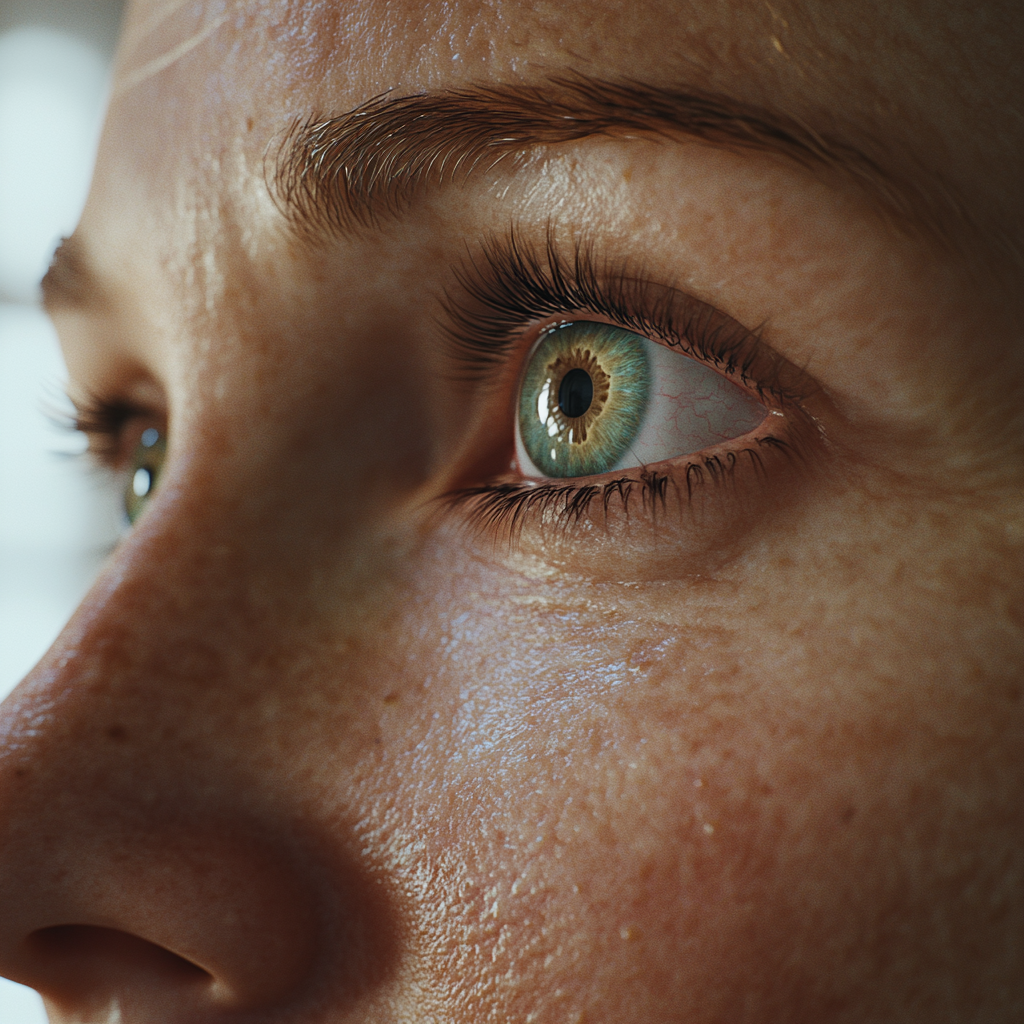
A close-up shot of a woman’s face | Source: Midjourney
“Ross, what’s wrong? You look like you’ve seen a ghost.”
I handed her the envelope without saying anything. She pulled out the check, looked at it, and her hand flew up to cover her mouth.
“Oh my God,” she whispered. “Ross, what is this? Where did this come from?”
So I told her everything. About the woman and her sleeping boy, the four dollars, and about how she’d looked so desperate and tired. Lydia read the note twice, then set it down on the counter and looked at me with tears in her eyes.

A close-up shot of a woman’s eyes | Source: Midjourney
Advertisement
“Ross, you have to go on Sunday,” she said firmly. “And honey, I need you to hear me. I’m so proud of you. What you did for that woman, not expecting anything back, just being decent when she needed it most… that’s who you are. That’s the man I married.”
“I didn’t do it for this, Lydia. I didn’t want anything back.”
“I know you didn’t,” she said, pulling me into a hug. “That’s exactly why you deserve it.”
***
Sunday came faster than I expected. I spent the whole morning nervous, changing my shirt three times before Lydia finally told me to stop fussing and just go. The address led me to a neighborhood I’d only driven through once or twice, the kind of place with big houses set back from the road, clean white fences, and hedges trimmed so perfectly they looked fake.

An aerial view of a neighborhood | Source: Pexels
Advertisement
When I pulled up to the house, an older couple was already standing on the front porch like they’d been waiting for me. The woman had silver hair pulled back in a bun, and she smiled the second she saw me. The man was tall with broad shoulders, and when I got out of the car, he came down the steps with his hand already extended.
“You’re Ross, aren’t you?” he said, shaking my hand with a firm grip.
“Yes, sir, I am.”
“I’m Robert, and this is my wife Margaret. Please, come inside. We’ve been looking forward to meeting you.”

An older couple standing together | Source: Pexels
Margaret hugged me right there on the porch, which caught me off guard. “Thank you for coming,” she said softly. “Thank you for everything.”
Advertisement
Inside, the house smelled like roast chicken and fresh bread. They led me to a dining room with a big wooden table already set for lunch. We sat down, and for a moment, nobody said anything. Then Robert cleared his throat.
“Ross, we need to tell you about our daughter Emily,” he began. “The woman you helped last week.”
Margaret reached over and took her husband’s hand, and I could see her eyes getting misty.
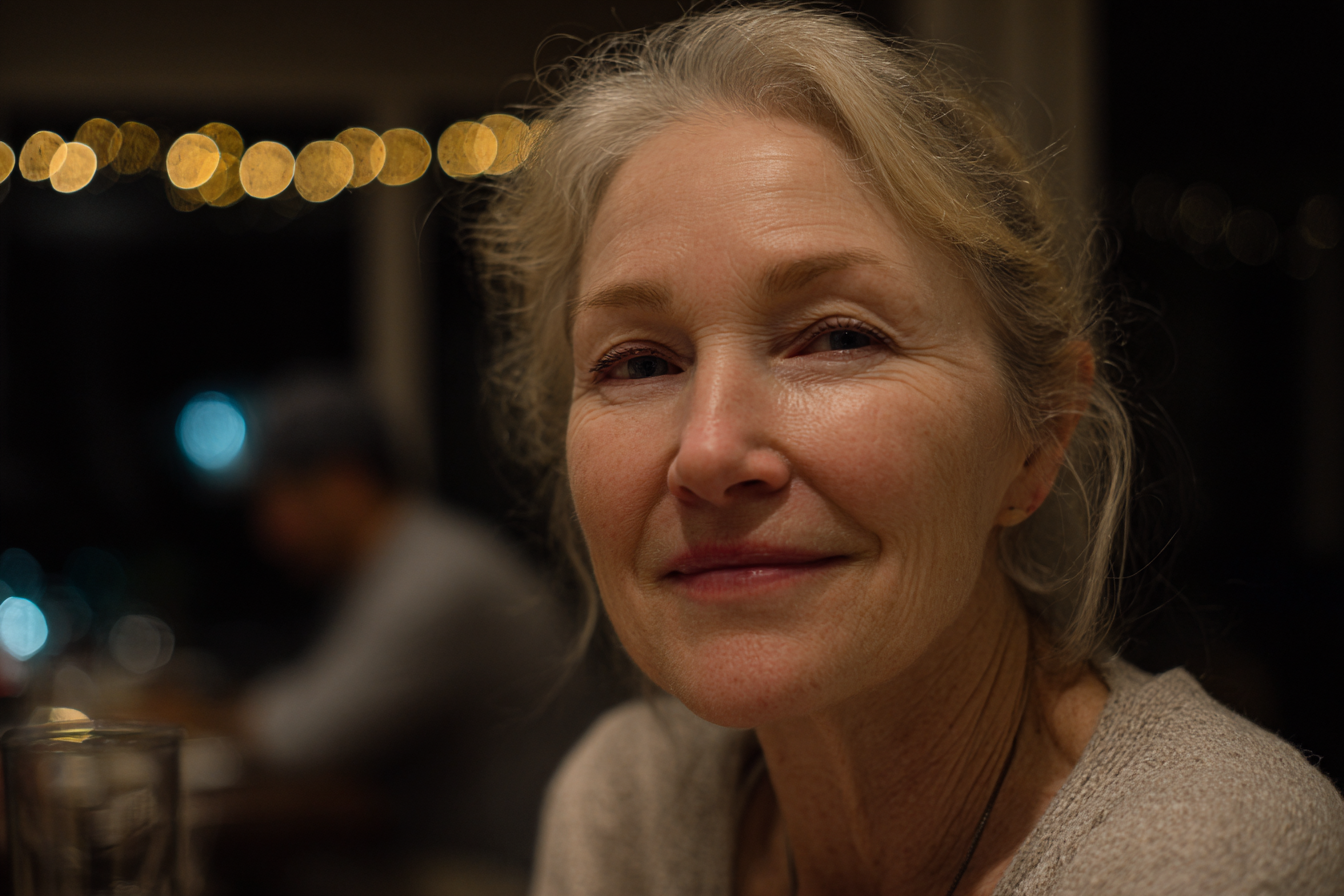
An older woman | Source: Midjourney
“Emily was in a bad marriage,” Robert continued. “Her husband was controlling and manipulative. He isolated her from us for almost two years, and we barely saw our grandson, Daniel, during that time. But something shifted in her recently. She found the courage to leave him.”
Advertisement
“That night you met her,” Margaret added, “she was driving home to us with Daniel asleep in the car. She’d left with almost nothing. Just some clothes and whatever money she had in her wallet. She was terrified and ashamed, and she didn’t want to call us until she absolutely had to.”
My chest felt tight listening to them.
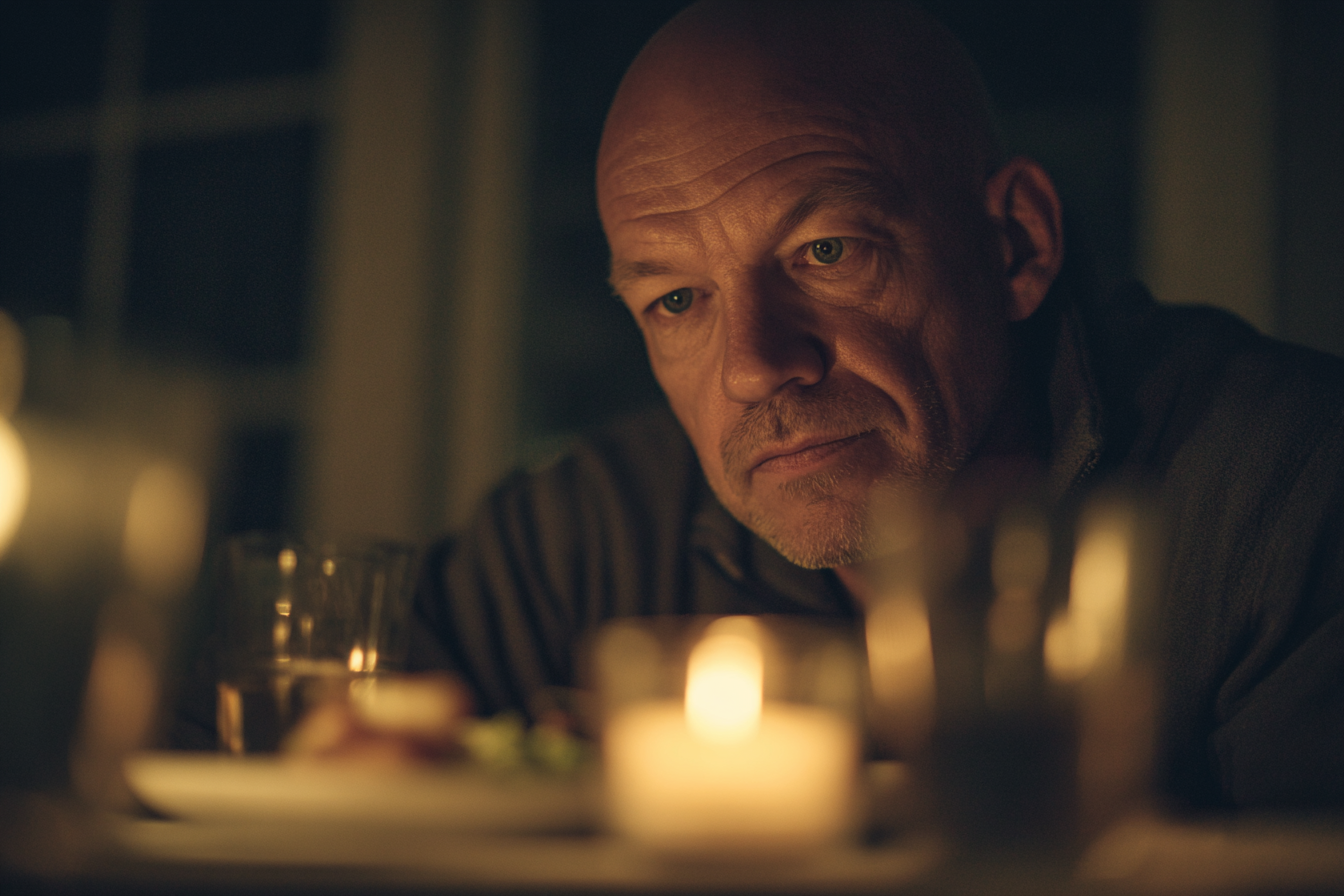
A man sitting at a table | Source: Midjourney
“When she ran short at your register,” Robert said, “she thought that was it. That she’d have to put things back, that she’d failed at the very first step of starting over. But then you helped her. You didn’t ask questions or make her feel small. You just helped.”
Margaret’s voice cracked a little. “When she got here that night, she couldn’t stop crying. She kept telling us about ‘the gas station man’ who told her to get home safe. She said it felt like the first time in years that someone treated her like a human being instead of a problem.”
Advertisement
I didn’t know what to say.
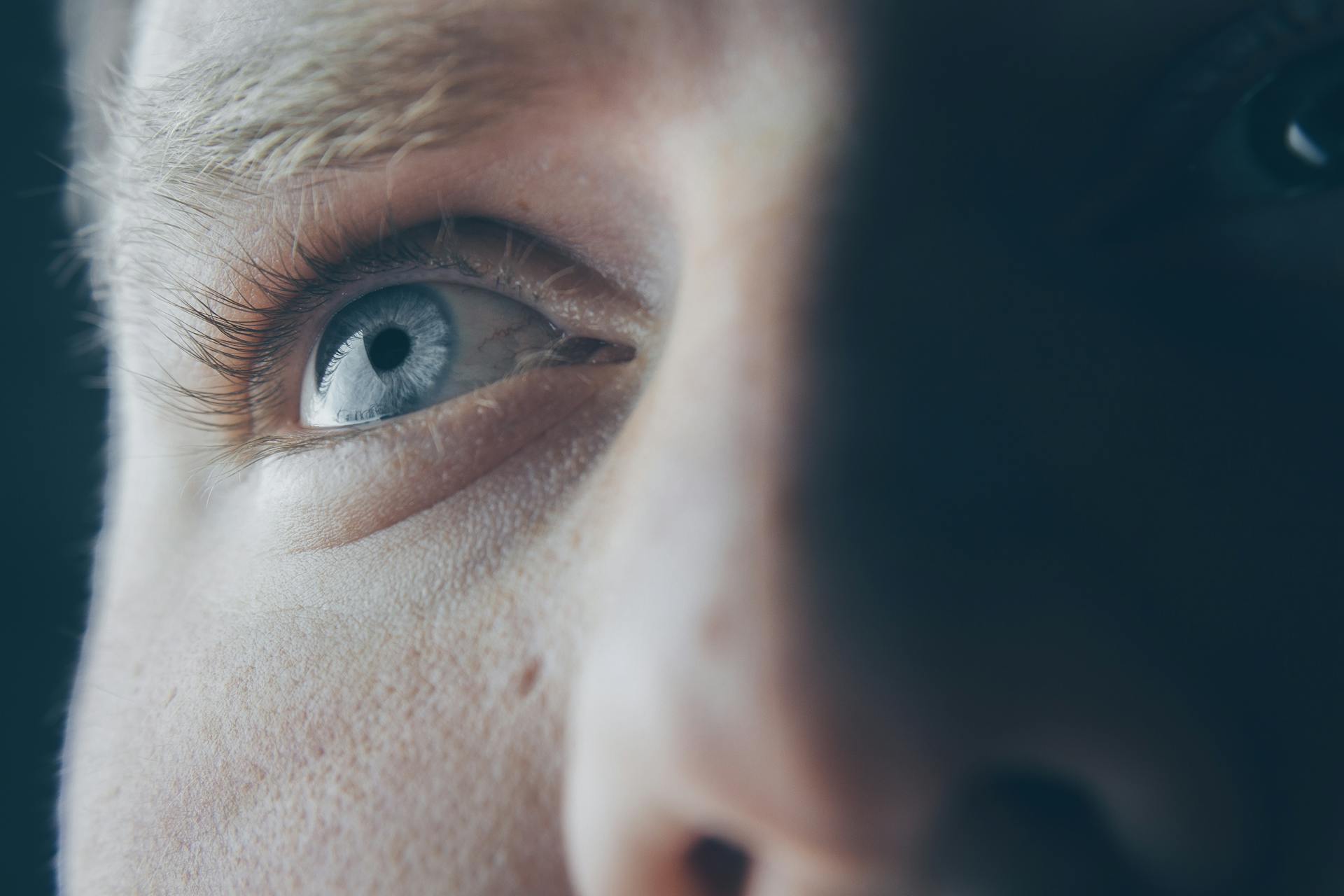
A close-up shot of a man’s eyes | Source: Pexels
“We sent that check because you deserve it,” Robert said firmly. “You helped bring our daughter and grandson home. You gave her dignity when she felt like she had none left.”
I shook my head. “I can’t accept that kind of money. I was just doing what anyone would do.”
“But not everyone did,” Margaret said gently. “You did. And that matters.”
We talked for hours after that. They told me about Daniel, about how Emily was doing now, about how they were helping her get back on her feet. I told them about my own kids, about losing my job, about how sometimes life just knocks you down harder than you expect.
Advertisement
They listened like every word mattered.
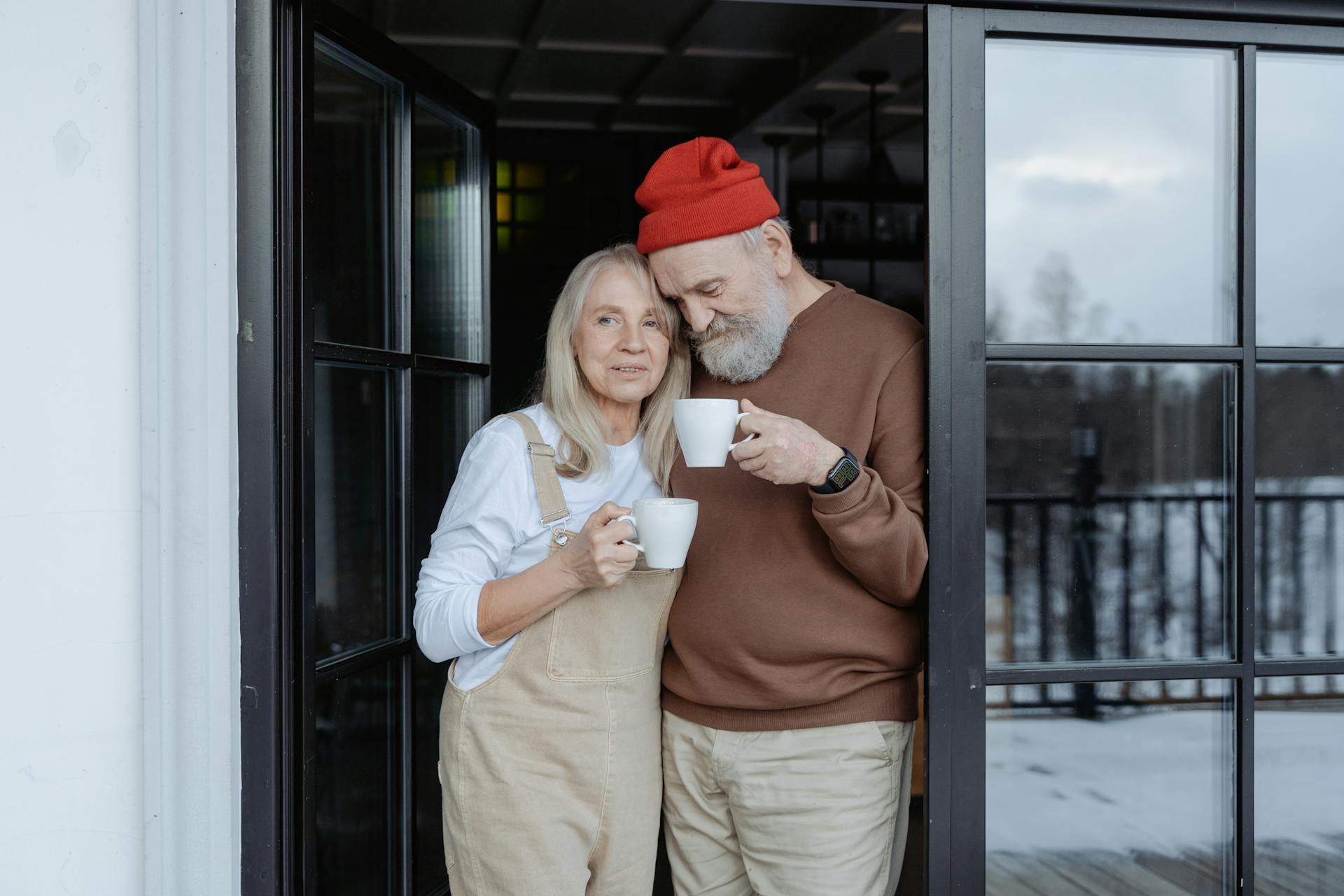
An older couple | Source: Pexels
When I finally left, Margaret hugged me again at the door. “You’re a good man, Ross. Don’t ever forget that.”
While driving home, I kept thinking about that night at the gas station. About how small that moment had felt to me and how big it had been for someone else.
When I walked through my front door, Lydia looked up from the couch where she’d been waiting.
“How did it go?” she asked.
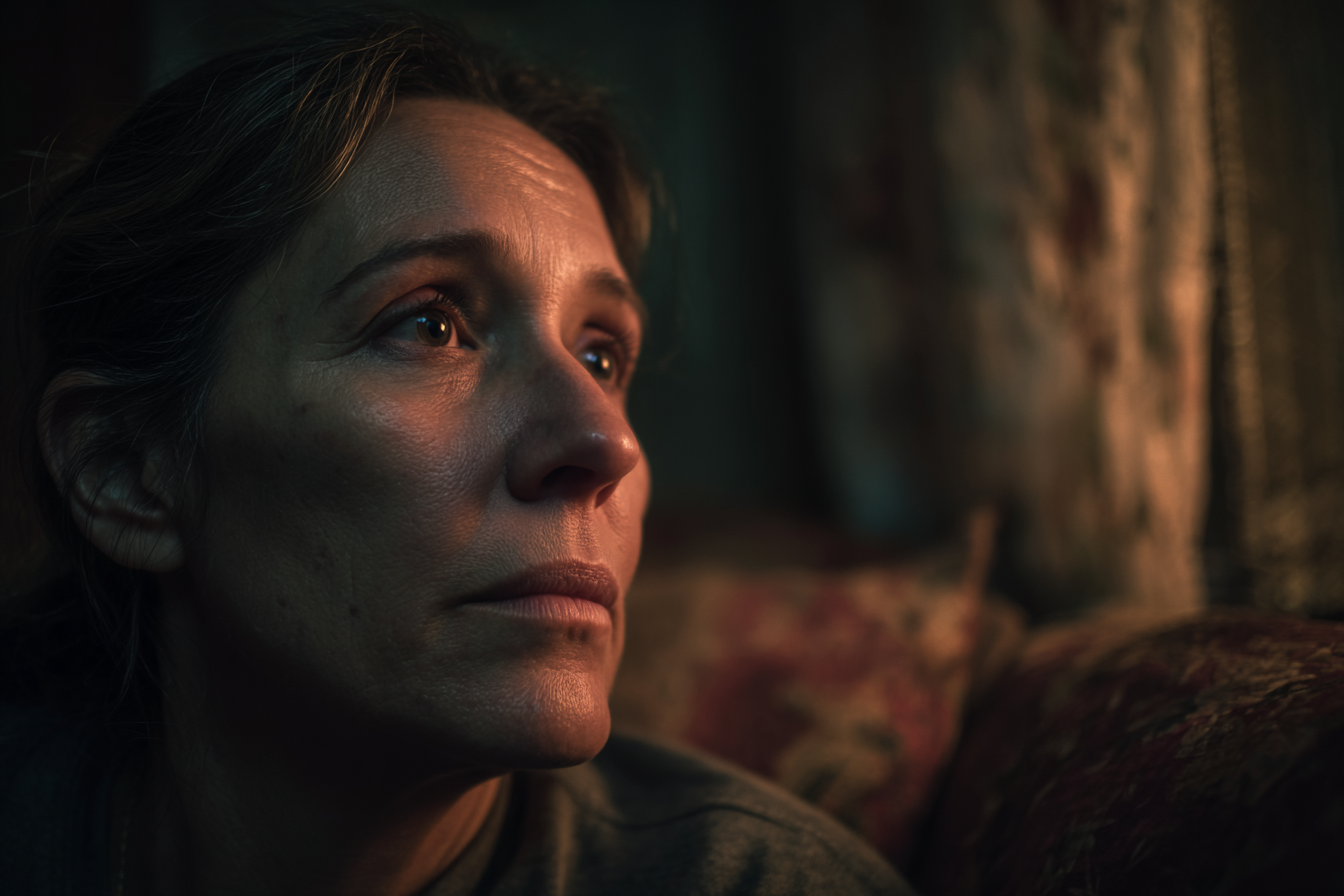
A woman sitting on a couch | Source: Midjourney
Advertisement
I sat down next to her and took her hand. “You know what’s funny? I thought I was the one doing a small kindness that night. Turns out, it was kindness that found its way back to me.”
She smiled and leaned her head on my shoulder. “That’s how it works sometimes. You give what you can, and the world remembers.”
I kept that check for two days before I finally deposited it. Part of me still couldn’t believe it was real. But it was. And it changed things for us, at least for a while. We caught up on bills, fixed the car, and bought the kids new shoes without worrying about the price.
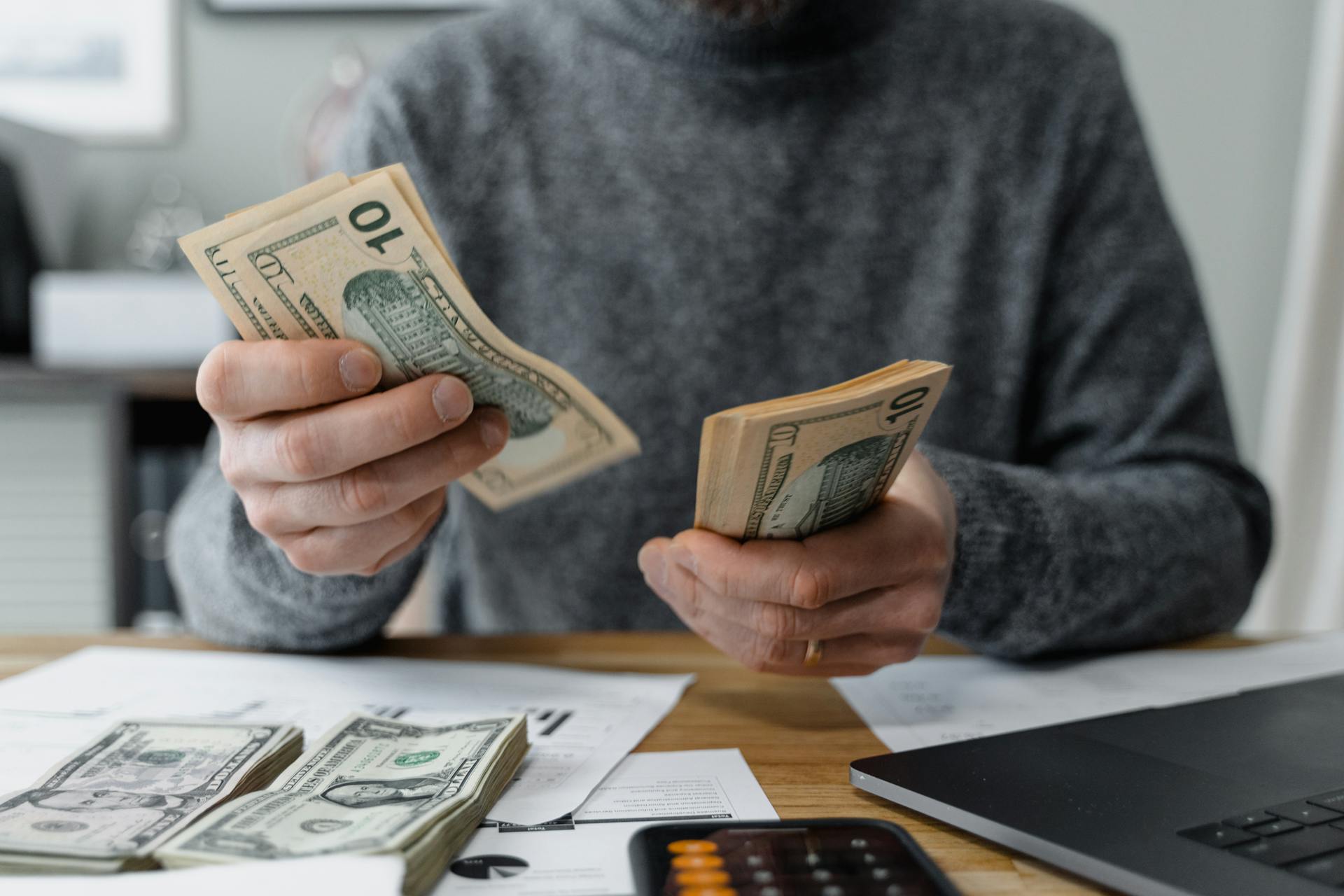
A man counting money | Source: Pexels
But more than the money, what stayed with me was something Margaret said before I left. She told me that small acts of decency, the ones we do without thinking, are the ones that matter most. Because they come from who we really are, not who we’re trying to be.
Advertisement
I still work that night shift at the gas station. I still ring up truckers, teenagers, and people just passing through.
But now, when someone comes in looking worn down by life, I pay a little more attention. Because you never know when four dollars and a kind word might be exactly what someone needs to make it home.
If you enjoyed reading this story, here’s another one you might like: When we pulled into our driveway that chilly October evening, I thought at first we’d been vandalized by teenagers. The pumpkins were smashed, the lights ripped down, and the cobwebs shredded. But the truth behind who destroyed our Halloween decorations was far more shocking.
Leave a Reply